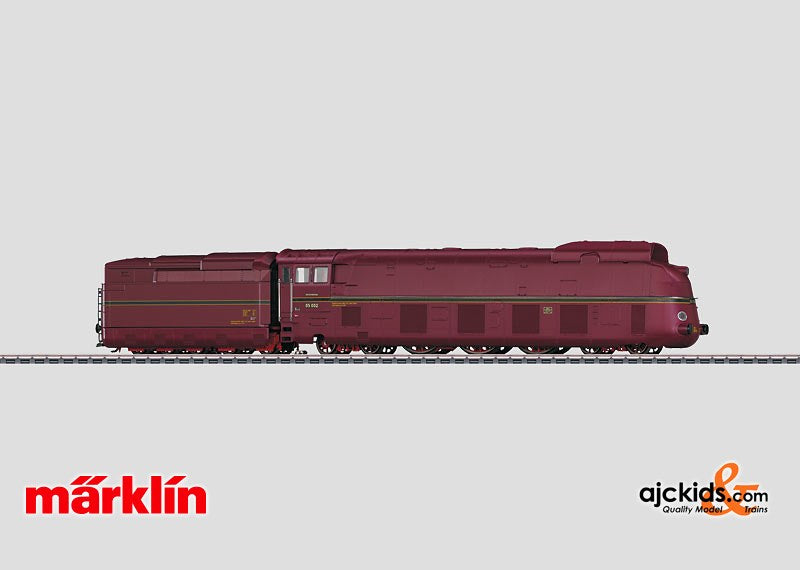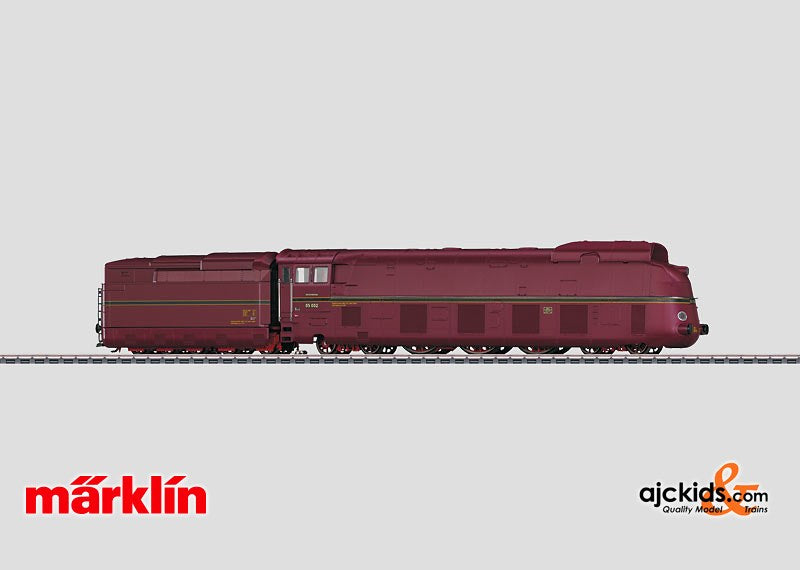Marklin 37052 - Steam Locomotive BR 5 - CBE 4
The outer box has some scuffs and tears. If minor box damage is an issue for you, this is not the one to buy. We can email you a picture of the box. Locomotive is in perfect condition.
It has a mfx digital decoder and a sound generator. It also has controlled high-efficiency propulsion can motor with a flywheel and a bell-shaped armature, in the locomotive's boiler. 3 axles powered. Traction tires. The locomotive has closed side streamlining without added cutouts. Minimum radius for operation 360 mm / 14-3/16". The headlights and other lighting are maintenance-free, warm white LED's. The headlights will work in conventional operation and can be controlled digitally. A 7226 smoke generator can be installed in the locomotive. The tender is constructed of metal. There is a permanent close coupling between the locomotive and the tender. The decoder can be accessed by pushing back the cover on the tender. Length over the buffers 30.7 cm / 12-1/16".
One-time edition in a limited series (model 4 of 5).
Prototype information
Road No. 05 002 World Record in the Olympic Year. In 1936, the highest level of performance was expected of and offered by more than the Olympic Games in Berlin; the German State Railroad Company (DRG) also made everyone sit up and take notice with a world record for steam locomotives. On May 11, 1936, the streamlined steam locomotive with road number 05 002 reached a speed of 200.4 km/h / 125.25 mph on a level route between Hamburg and Berlin near Friesack with a performance measured at 3,400 horsepower. This unbelievable act of power was the consequence of bitter competition between the types of motive power, a competition that broke out due to the fast combustion powered rail cars and the increasingly more powerful electric locomotives.
The Borsig designers in Berlin were responsible for the class 05, of which only two units were built however. A third, modified unit came later. These 26,265 mm / 86 foot 2 inch long and 129.9 metric ton heavy locomotives with a driving wheel diameter of 2,300 mm / 90-1/2 inches were given a full streamlined cladding, i.e. the sleek outer skin surrounded the entire locomotive and tender and extended down almost to the railhead. The running gear was accessible by means of roll-down covers. A striking red paint scheme with discrete striping enhanced this immense locomotive visually, and it quickly became a symbol for progress and speed. The prestigious world record for road no. 05 002 was broken two years later however by the British locomotive “Mallard” (LNER class A4) with 201.2 km/h / 125.75 mph and a short term peak of 202.6 km/h / 126.63 mph on a lightly sloping route. After World War II, the three class 05 locomotives lost their streamlining and were indispensable for a few more years as motive power for F-Zug long distance expresses; the final end came only with the introduction of the V 200.
EAN/UPC: 4001883370521



